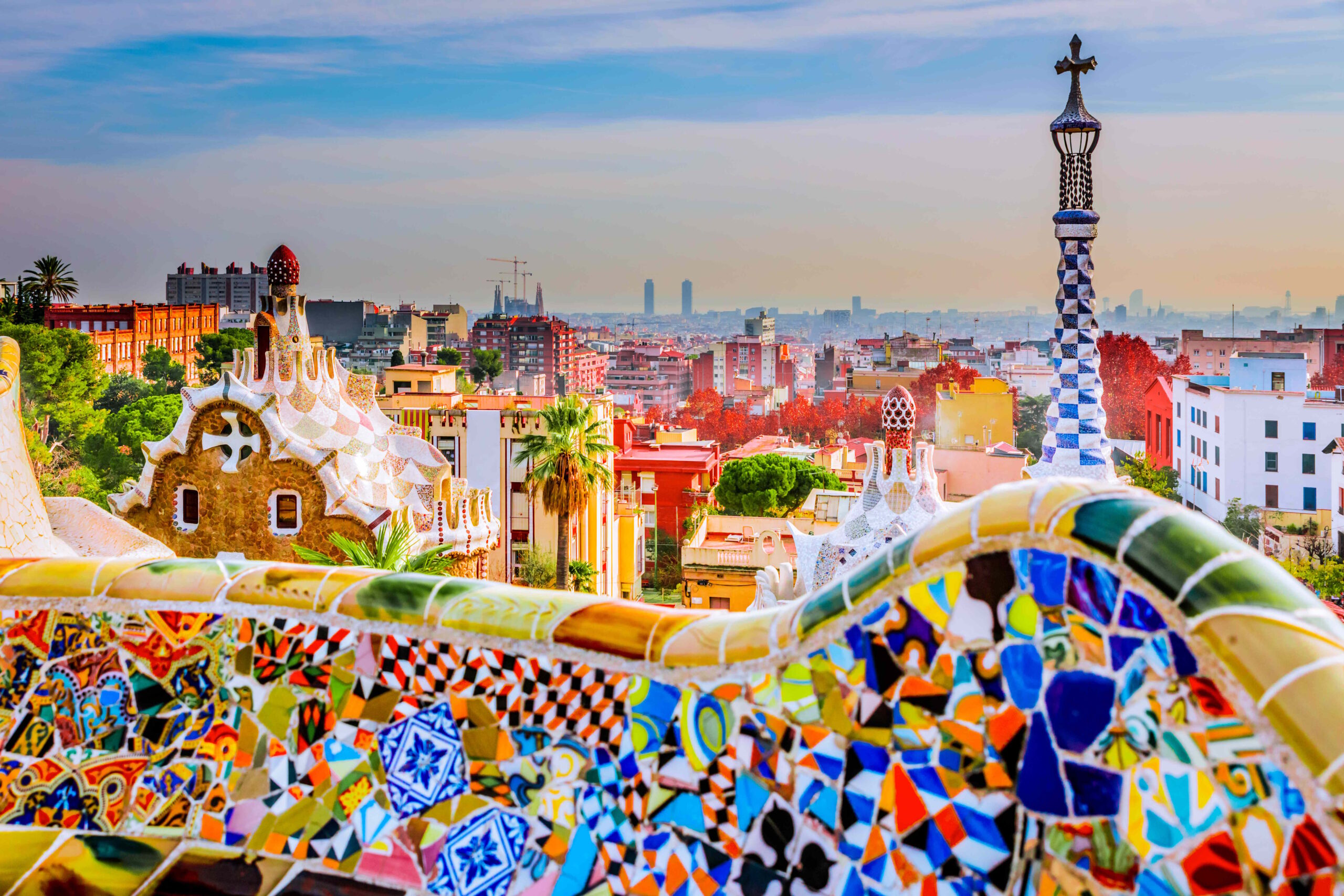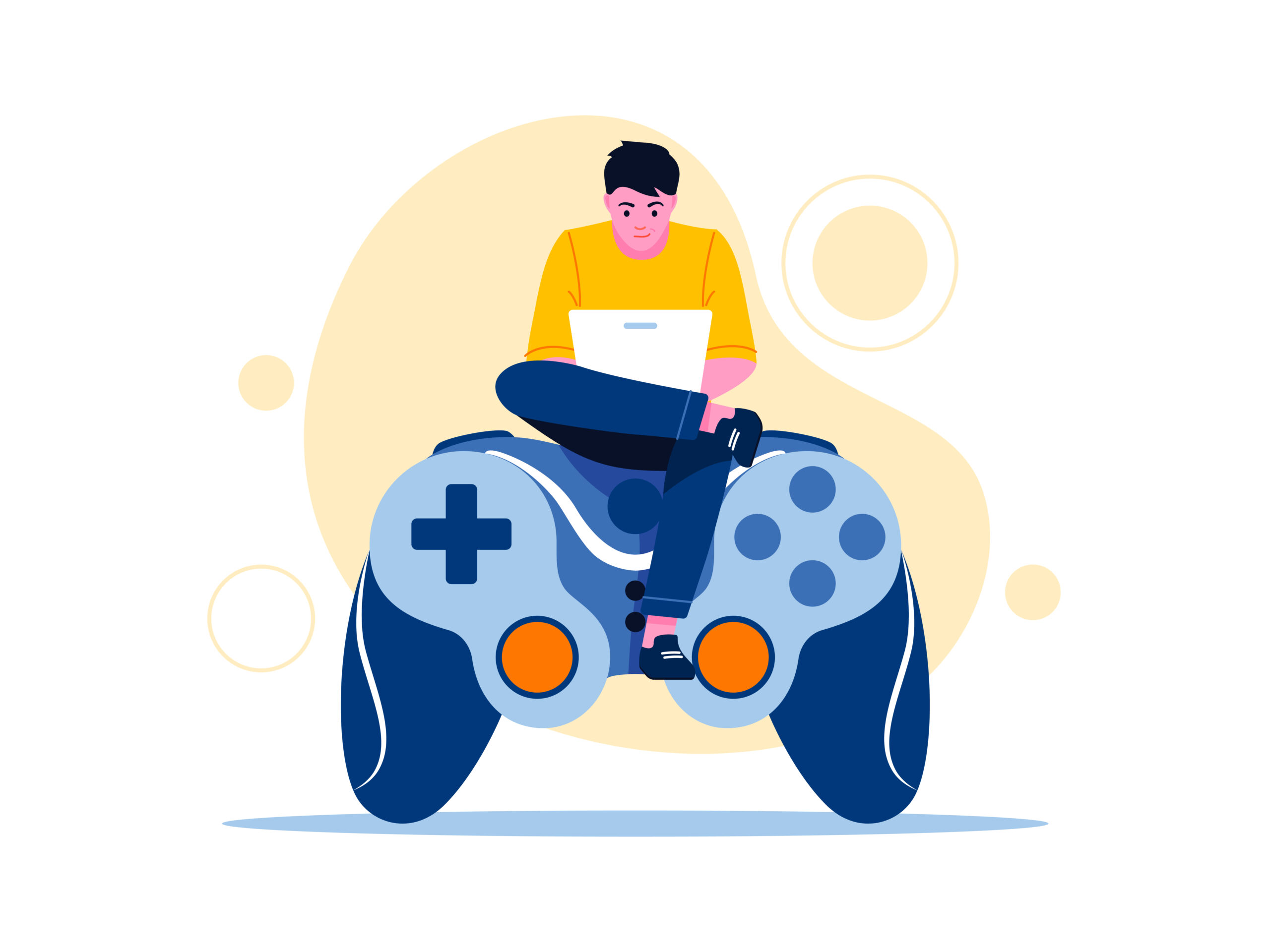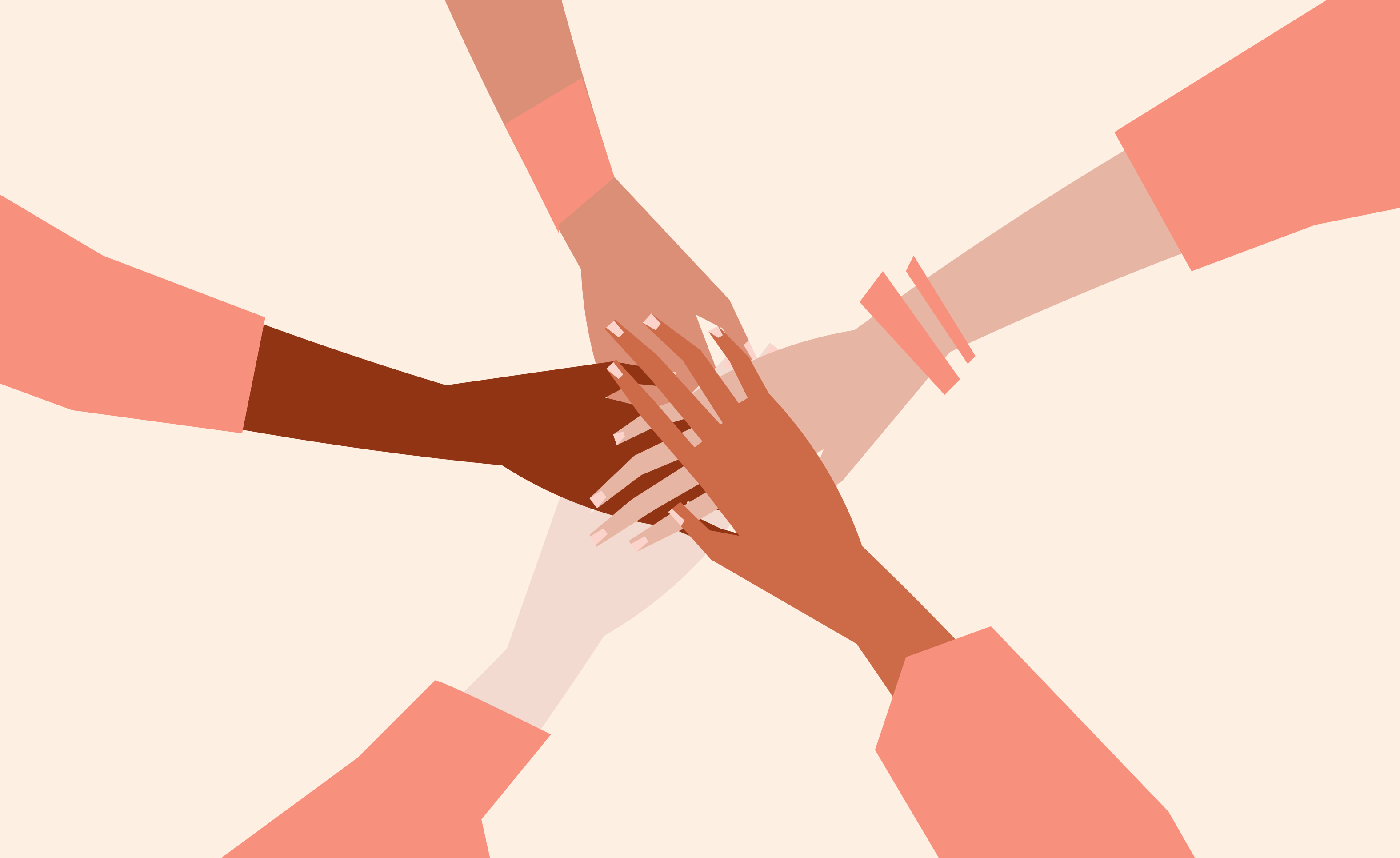
#1 RISE UP Workshop Review: How to Use Digital Tools to Support Minoritised Languages
Thank you for the warm welcome – M&S’ RISE UP workshop series debuts with digital tools.
What was the workshop about?
Hosted by Gisela Hagmair (MINDS & SPARKS), “How to Use Digital Tools to Support Minoritised Languages” featured a select group of presenters who explored the intersection of language and technology in the form of digital language activism, minority language podcasting, digital language learning platforms, and more. Since one of the goals of RISE UP is to create a Digital Toolkit, Yash Shekhawat (Nurogames) also presented a first draft of what our RISE UP Toolkit might look like in the future (see below), including so-called “serious games” for language learning, platforms for community building, and tools for language uptake (e.g. dictionaries, translation services, media libraries, etc).
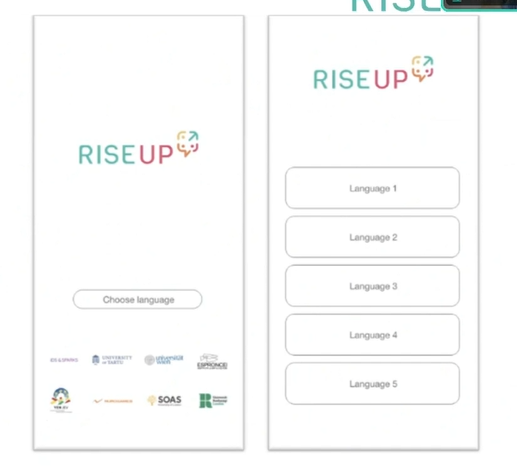
What is RISE UP?
RISE UP is a HORIZON EUROPE-funded project that seeks to put minoritized language communities centre-stage. Chosen due to their diverse characteristics, our five selected language communities are Aranés, Aromanian/Vlach, Burgenland Croatian, Cornish, and Seto, but the Digital Toolkit we are developing will hopefully prove useful to other minoritised language communities, as well.
What if I missed the workshop/want to revisit the material?
This Review Article is a good place to start – you can find all the presenters’ contact details, recaps of their project presentations and summaries of their workshops below. If you want to (re-)experience their presentations in more depth, you can also find the recording here, on YouTube (https://www.youtube.com/watch?v=ZillIDGaNBU).
Who were the presenters? What are their projects?
First up was Eddie Avila from Rising Voices (see below) who spoke on the emerging movement of language digital activism. Rising Voices is an outreach initiative of Global Voices and has supported indigenous language communities all around the world but especially in Latin America, in advocating for their languages in digital spaces for approximately ten years now. What first began as Peer Gatherings of advocates and activists has now grown into campaigns and networks spanning Africa, Asia, Latin America, North America, and Europe. Rising Voices also offers an annual Fellowship Programme with a stipend to 10 community members of Mayan language families in Mexico, fostering an ongoing cycle of mentorship and allowing them to develop and implement community-based digital projects. On their website, Global Voices offers a directory of digital language projects in Latin America (and, soon, all over the world) which you can find here (https://rising.globalvoices.org/lenguas/directorio/) – RISE UP is currently working on a similar platform for Europe.
You can find out more about Rising Voices on their website (https://rising.globalvoices.org/), their Instagram (https://www.instagram.com/rising_voices), and their Twitter/X (https://twitter.com/risingvoices). E-mails will reach them at rising@globalvoices.org, and you can also write directly to Eddie at eddie@globalvoices.org.
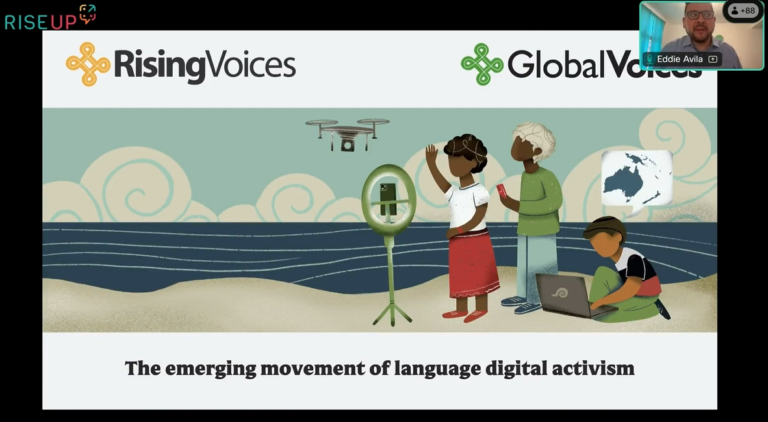
Representing the podcasting world, Juan Vergara (see below) outlined how he and his friend María Sabarís created Fóra de Mapa, a Galician podcast about European ethnic, linguistic and religious minorities. Since Juan is based in Brussels and María in London, most of their collaboration takes place online. Over the course of their (so far) 38 episodes, they have tackled diversity in Europe on various levels: Normandy, for example, because of its regional identity, Irish because of its minoritised status despite being an official national language, Montenegro because of the country’s complex identity, etc. Each episode covers linguistic factors of interest, the history and politics of the chosen region, potential conflicts, and interviews with activists, community contacts, and researchers. It is perhaps surprising to learn that the majority of Fóra de Mapa’s listeners do not live in Galicia – that is because some Galician-speakers live abroad and because Galician is sufficiently similar to Portuguese and Spanish that those who speak either of these languages can still understand the gist of each episode (and are clearly eager to tune in).
You can listen to Fóra de Mapa here (https://podcasts.apple.com/at/podcast/f%C3%B3ra-de-mapa/id1552797122) or here (https://podgalego.agora.gal/fora-de-mapa/) and explore other Galician podcasts, YouTubers, Twitch streamers, etc here (https://obradoirodixitalgalego.gal/). You can also find them on Instagram (https://www.instagram.com/forademapapodcast/), Twitter/X (https://twitter.com/ForadeMapa) and on Goodreads, where they share the bibliographies for each episode (https://www.goodreads.com/group/show/1158236-f-ra-de-mapa). E-mails will reach Juan at j.e.vergaramiguez@gmail.com.
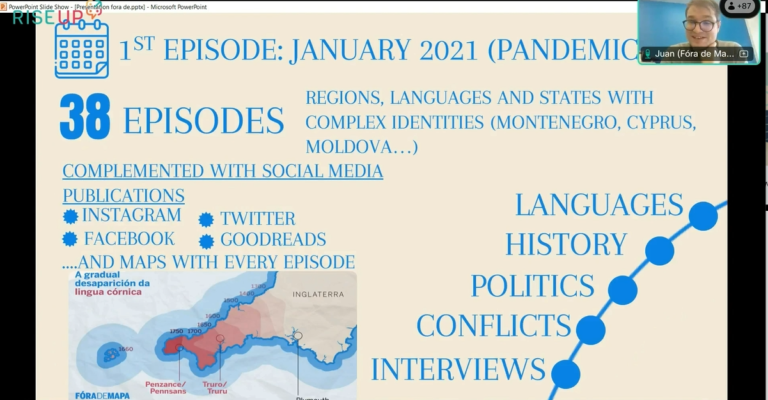
Finally, Elena Saricu Todica (see below) and Florentina Costea presented Anveatsã Armãneashti, an online platform for learning Aromanian that was developed over the course of a bigger project on Aromanian teaching materials. While originally a language variety of the Balkans, Aromanians now live in countries all over the world, including Greece, Romania, Australia, and the United States of America. In 2015/16, Elena and Florentina received the funds to create Anveatsã Armãneashti – marking the first time that any digital tools for learning and teaching Aromanian were made available online. The reason why they opted for a web-based application was sustainability; they wanted the tool to be freely available to the public even after the completion of the original project. There are three main target groups of learners: kids from 6-8, kids from 9-13, and teenagers and adults. The first mask of the platform is in English and is structured similarly to Duolingo, allowing for simple vocabulary translation and grammar exercises. The second mask is “in lingua”, so it requires learners to already speak some Aromanian to complete the exercises. And the third mask is a database of Aromanian documents specifically designed to be used as teaching material or as self-study exercises and theory lessons for advanced learners. One of the challenges when learning and teaching Aromanian is that there are (at least) two main schools of thoughts on how Aromanian should be written.
You can find the Aromanian learning platform here (http://app.dixionline.net/AnveatsaArmaneashti/lectii.php), and you can contact Elena and Florentina via E-mail at e.saricu@gmail.com and fl_costea@yahoo.com.
An interesting point of discussion was raised by Heather Souter, one of the workshop participants, who asked how the project’s language data is being protected. She clarified that in the linguistic community of North America, data sovereignty is a big issue because large corporations (e.g. META) have scraped data from websites even if it was prohibited. This has resulted in instances where language data was used to produce language models that “said” things that would not have come from the communities themselves and were even, at times, considered culturally and spiritually inappropriate. Yash replied that, as far as we know, big companies are not currently targeting endangered language communities – at least not in Europe, and at least not right now – which is also why they are not included in OpenAI, ChatGPT, etc. It is certainly a point to keep in mind.
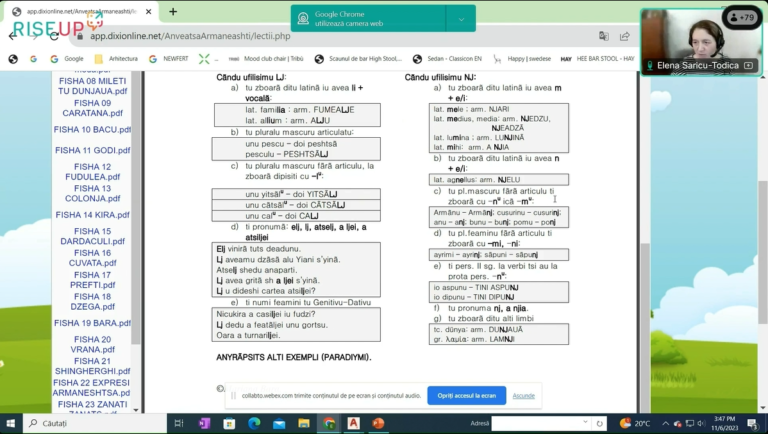
What were the main findings of the workshops?
After the presentations, participants could choose and switch between four workshops running in parallel: one by each of the presenters (Rising Voices, Fóra de Mapa, and Anveatsã Armãneashti) and one by Marie-Therese Sauer on the Linguistic Atlas that is currently being developed by MINDS & SPARKS. In order to make all findings accessible to everyone, we took notes in each of the workshops, which you can find below.
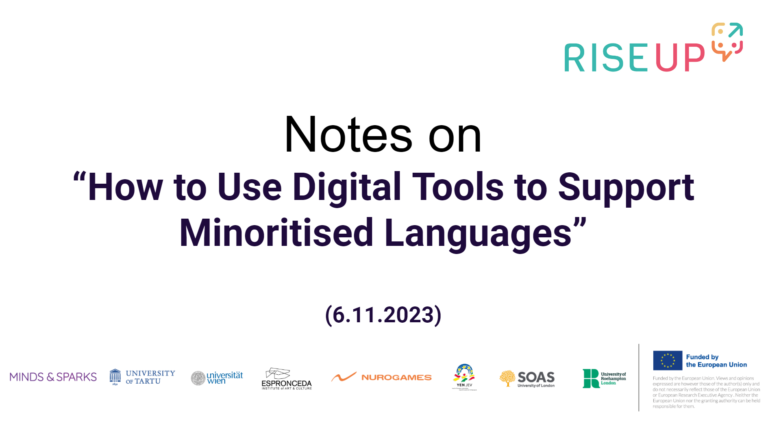
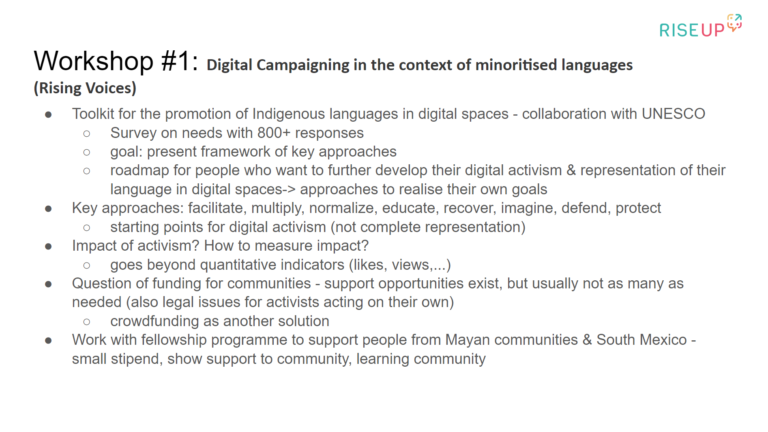
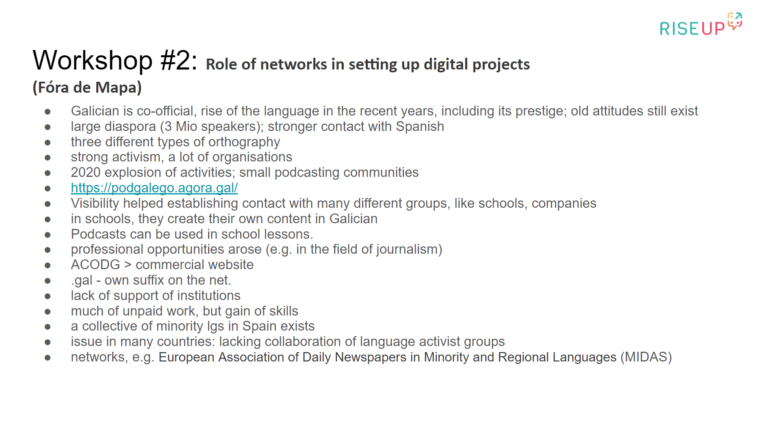
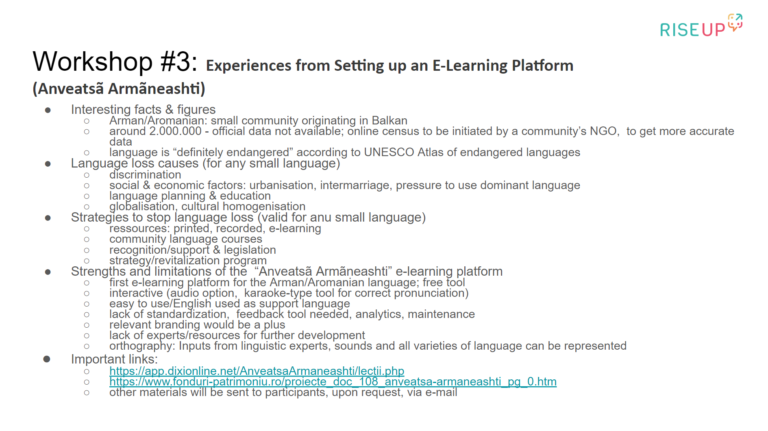
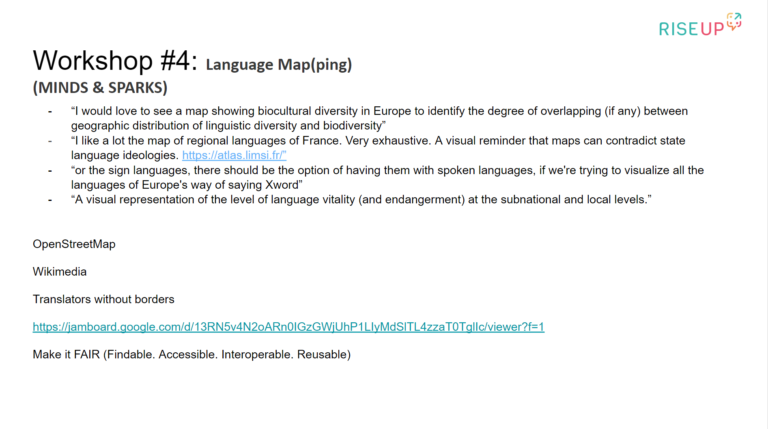
*the slides move on their own and you can stop the movement by hovering over your chosen slide with your mouse
Who attended?
We were delighted to see that close to 100 participants were interested in learning more about digital tools and how they can benefit minoritised language groups – and we were especially happy that people from all over the world and with all kinds of linguistic interests joined our workshop. When we asked which language varieties participants were most interested in, we received a diverse bounty of replies, including “Euskera”, “Quechua”, “Japanese”, “Ahamb (Vanuatu)”, “Cornish Sign Language”, “Brezhoneg” and “Manobo”.
We would like to thank everyone who left a “thank you” in their language variety in our final survey (which you can find inside the speech bubble on the header picture) and would also like to extend a special thank you to the World Federation of the Deaf (WFD). Their two interpreters were excellent, and although we wish that we could have spared them the trouble, their concentration in the face of occasional technical difficulties was truly impressive to behold.
What did we learn?
We take the feedback you provided in our final survey very seriously. With an average rating of 9/10 stars, we were grateful to hear that the workshop seems to have been useful and interesting for most of you. Your feedback also told us that you would have liked longer workshop sessions and a clearer explanation of which group of participants (academics/activists/general public/…) each workshop was designed for – we will try to incorporate these points in our next workshop. Thank you for sharing your thoughts.
Unfortunately, we learned a little too late that only “pinning” the sign language interpreters’ videos next to the presenters is not enough to make them show up on our Webex recording. We will make sure that they are visible in the recording of our next workshop.
How can I help?
The easiest way to contribute to RISE UP is to subscribe to and interact with our Social Media channels – on YouTube (https://www.youtube.com/channel/UC62uAM8YpJg1KObytMpO8Zw), LinkedIn (https://www.linkedin.com/in/rise-up-horizon-europe/), Twitter/X (https://twitter.com/RISEUP_HE), and Instagram (https://www.instagram.com/riseup_eu/). You can also stay up-to-date with our projects by following the hashtag #RiseUpEU.
If you would like to be even more involved, we would be happy to add you to our list of Community Contacts. Just let us know by writing a mail to office@riseupproject.eu and tell us about your interests, background, and thoughts on the project.
Author: Marie-Therese Sauer
Keywords
#RiseUpEU, Rising Voices, Fóra de Mapa, Anveatsã Armãneashti, workshop, digital tools, minoritised languages, digital language activism, minority language podcasts, language learning platforms
